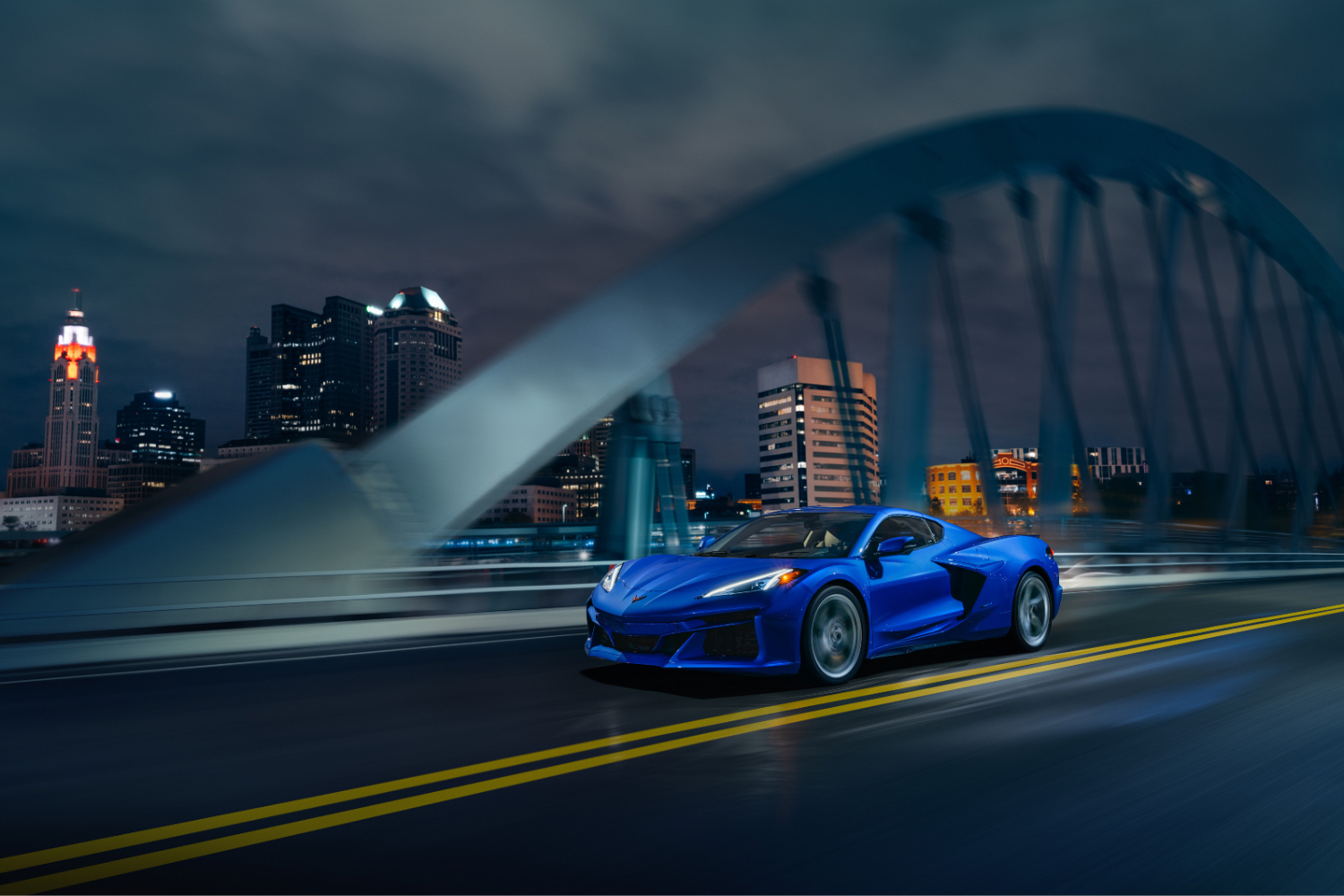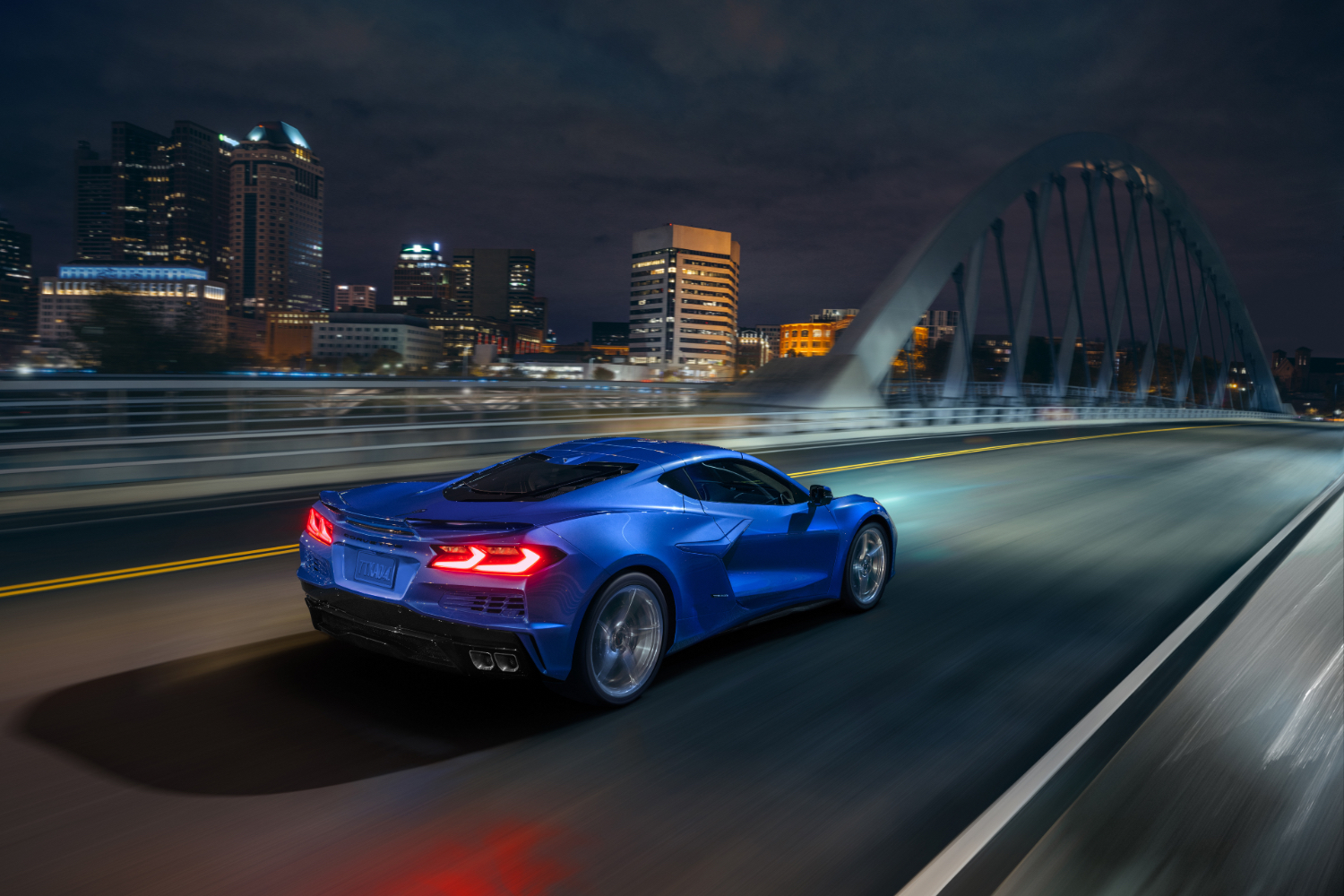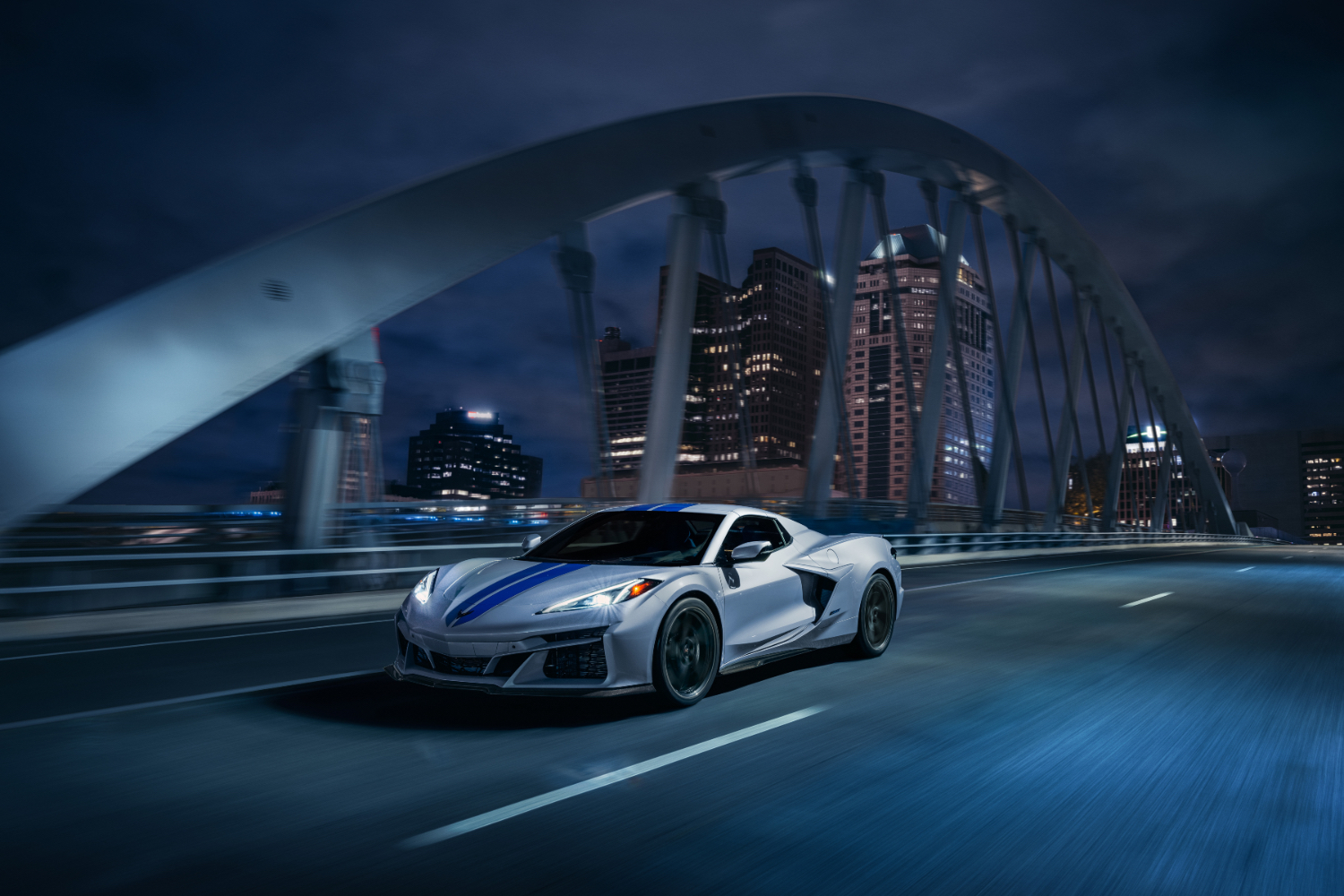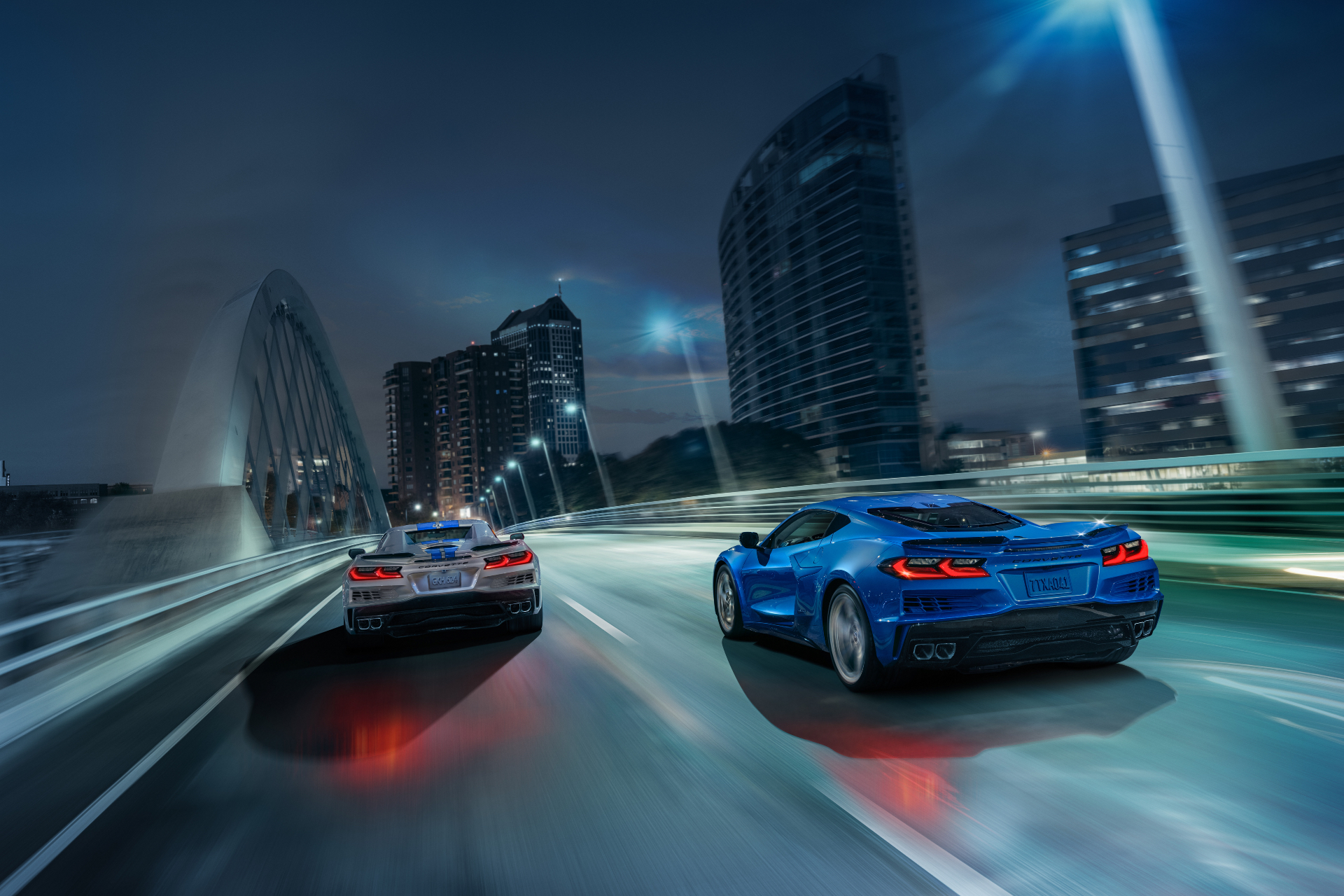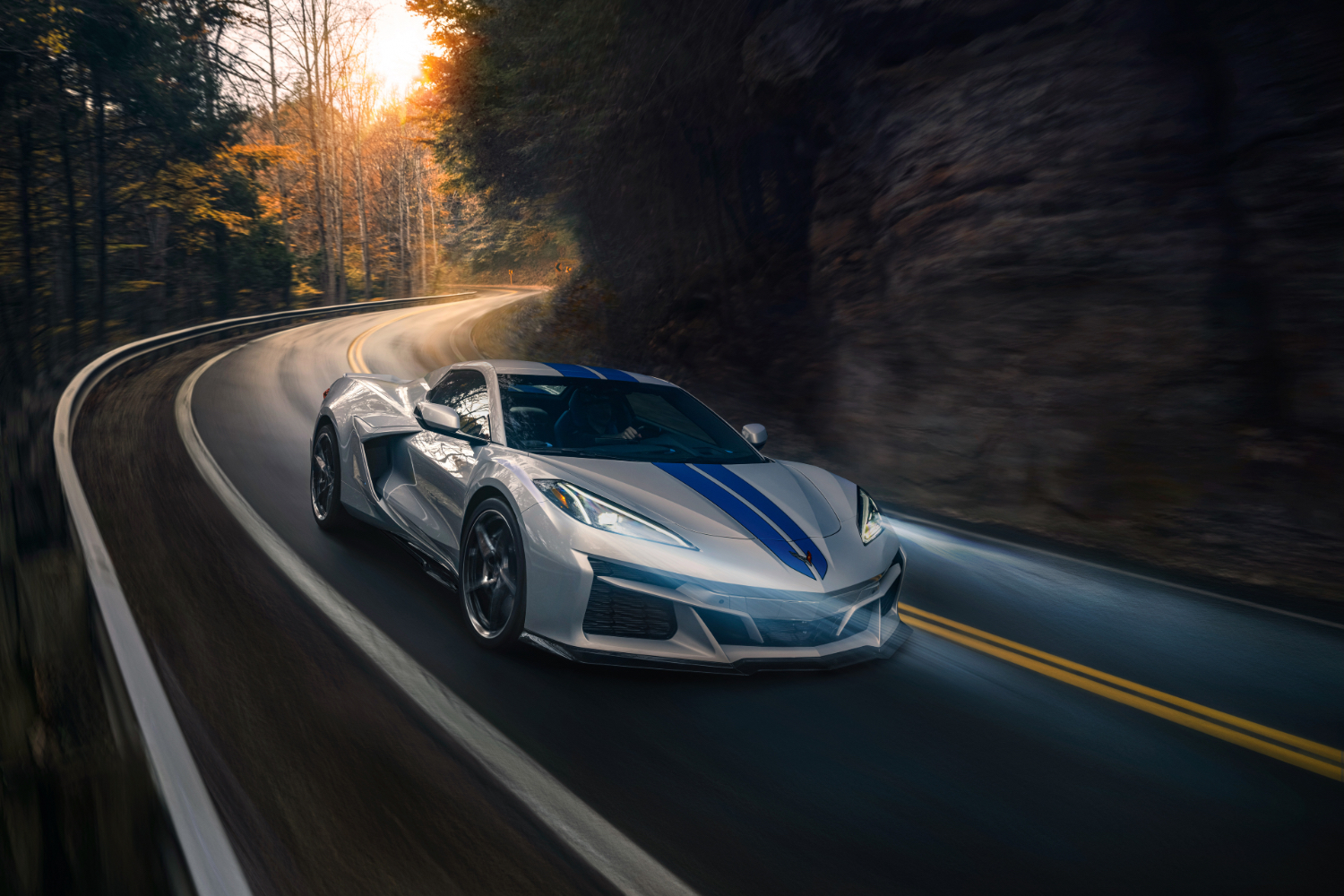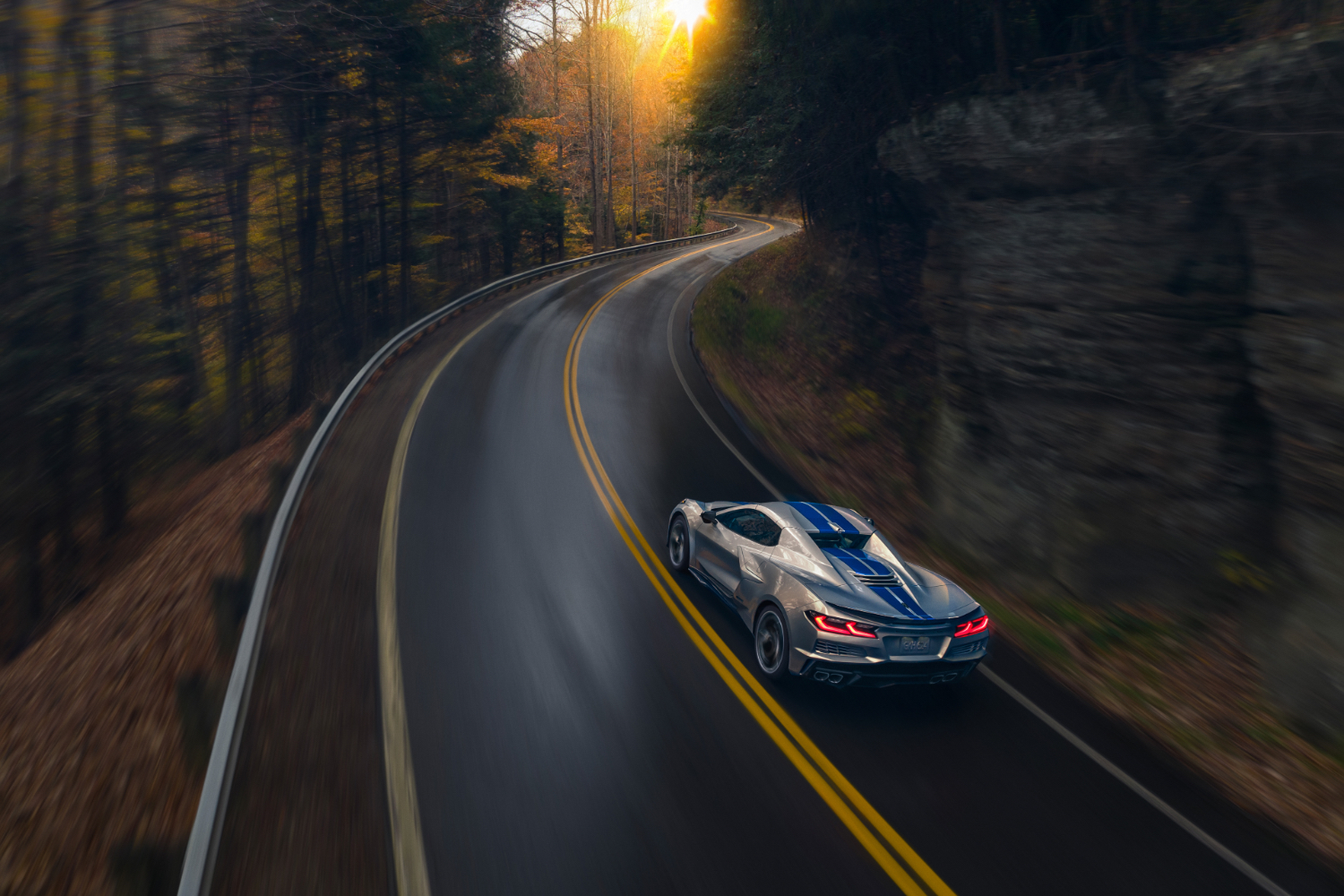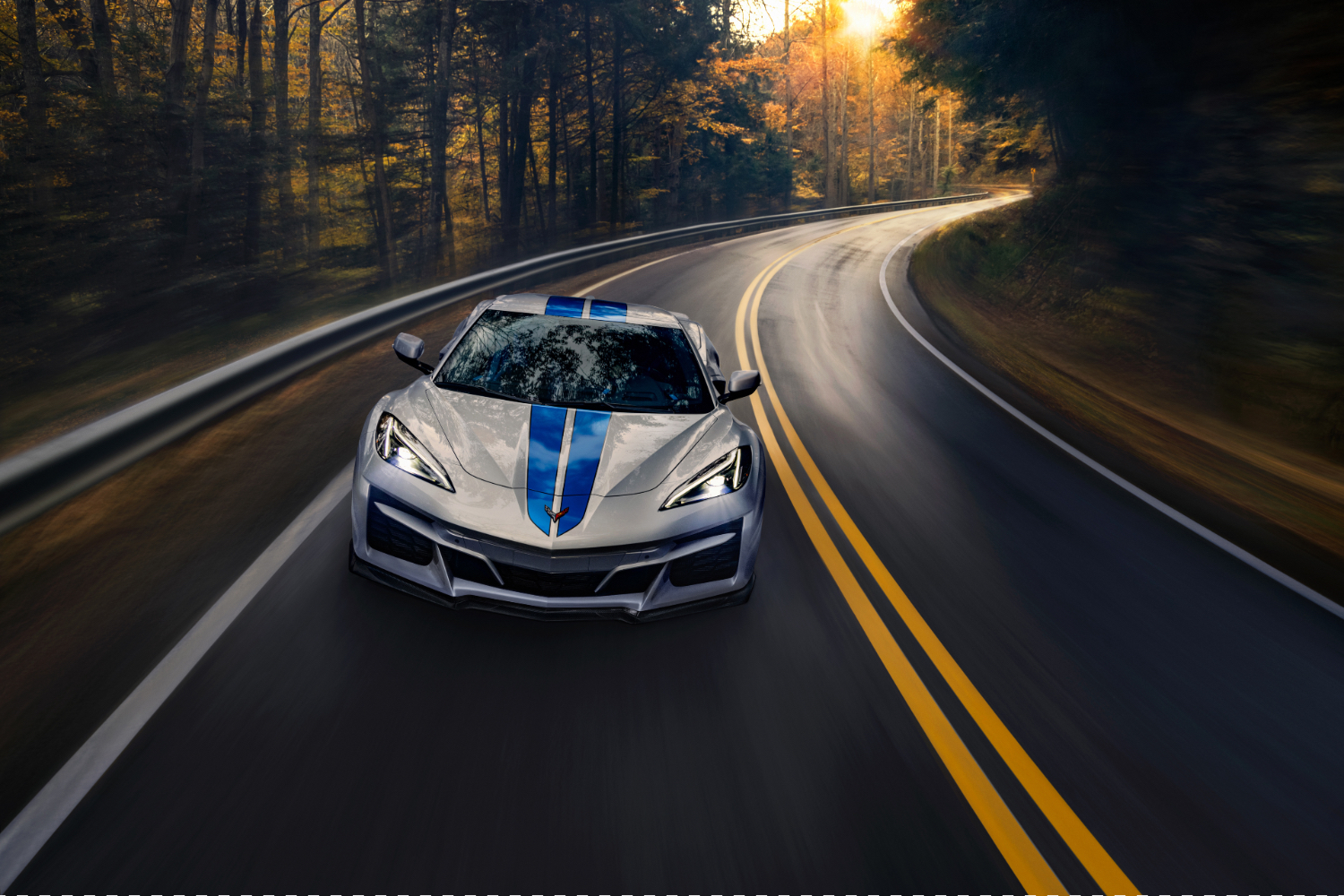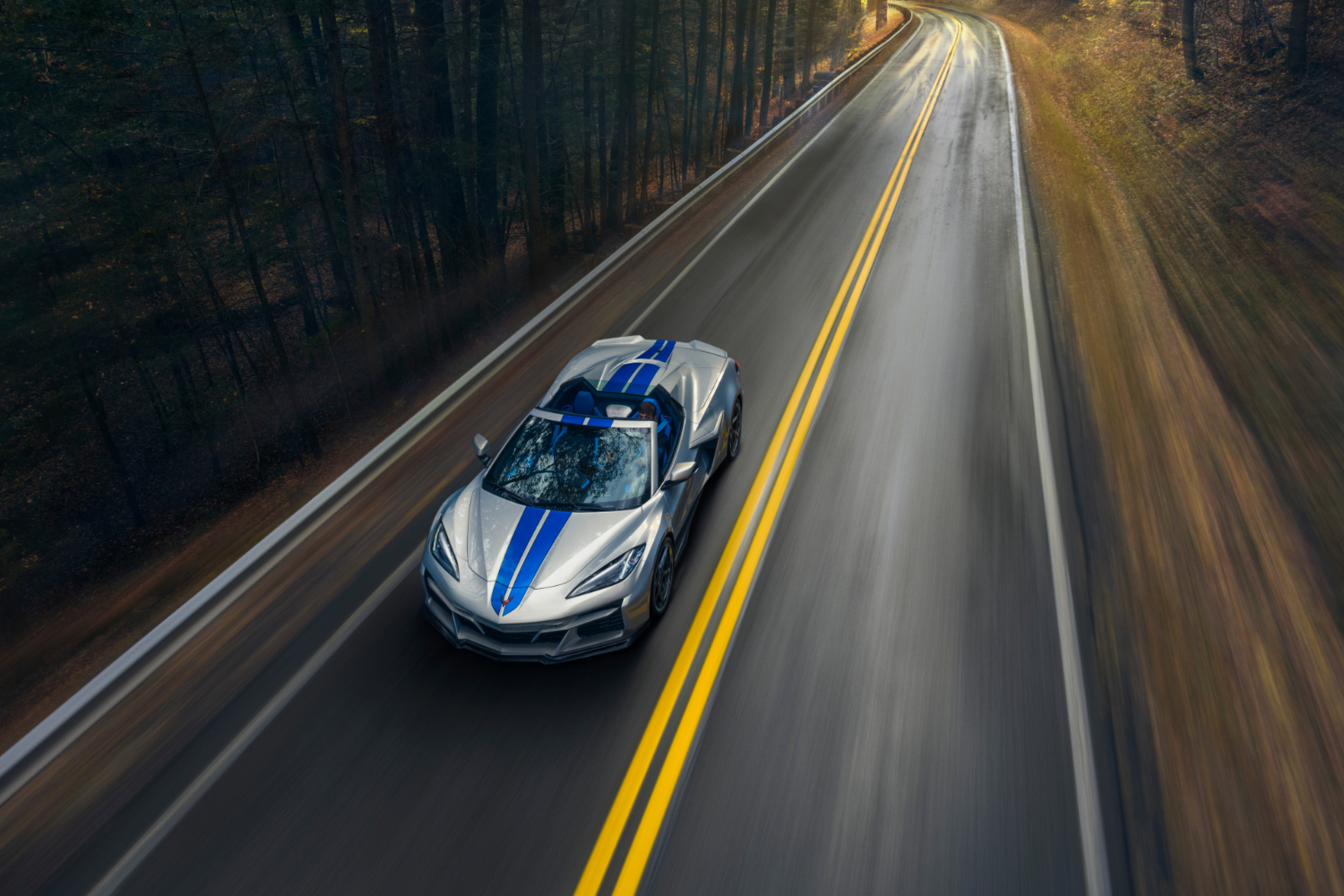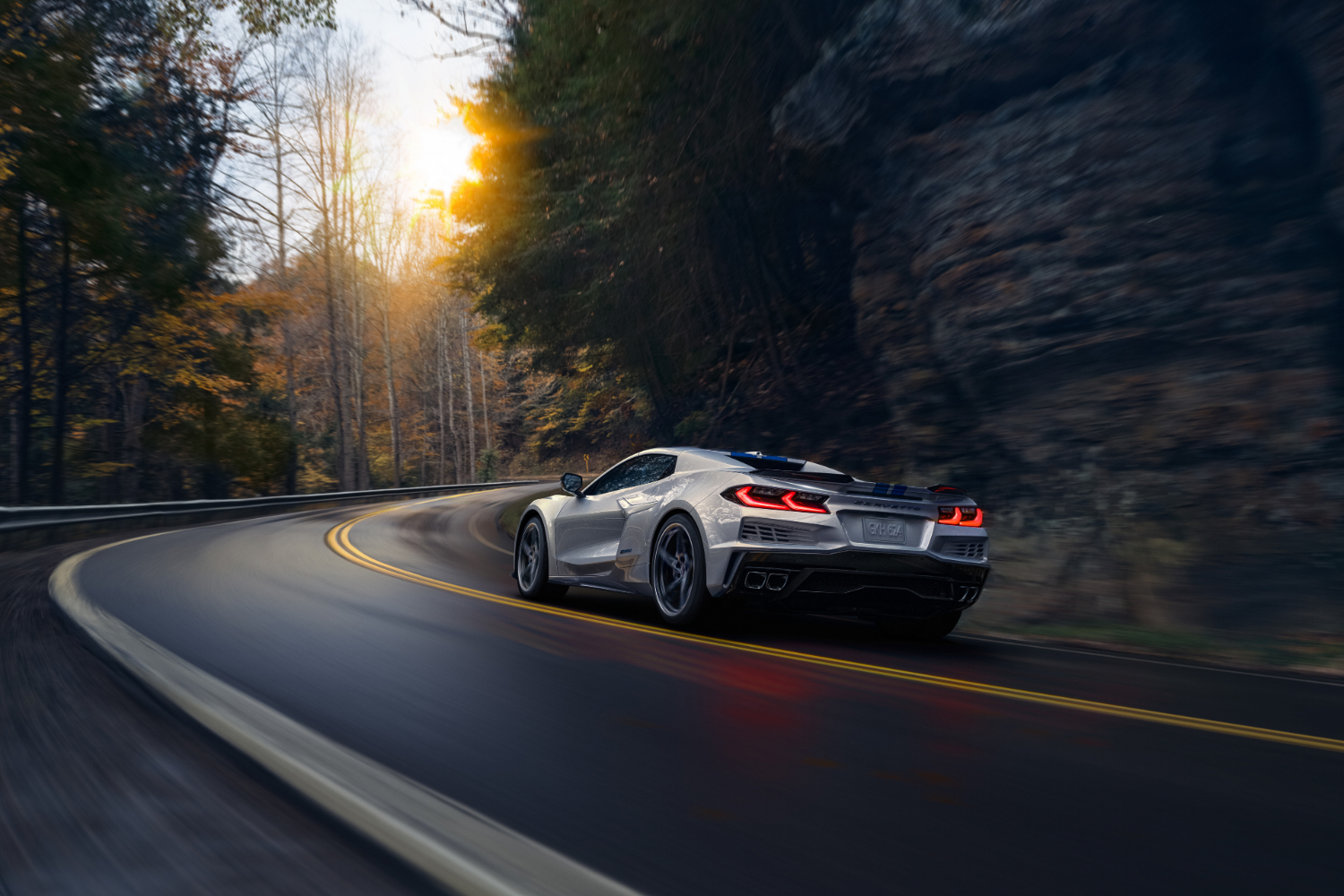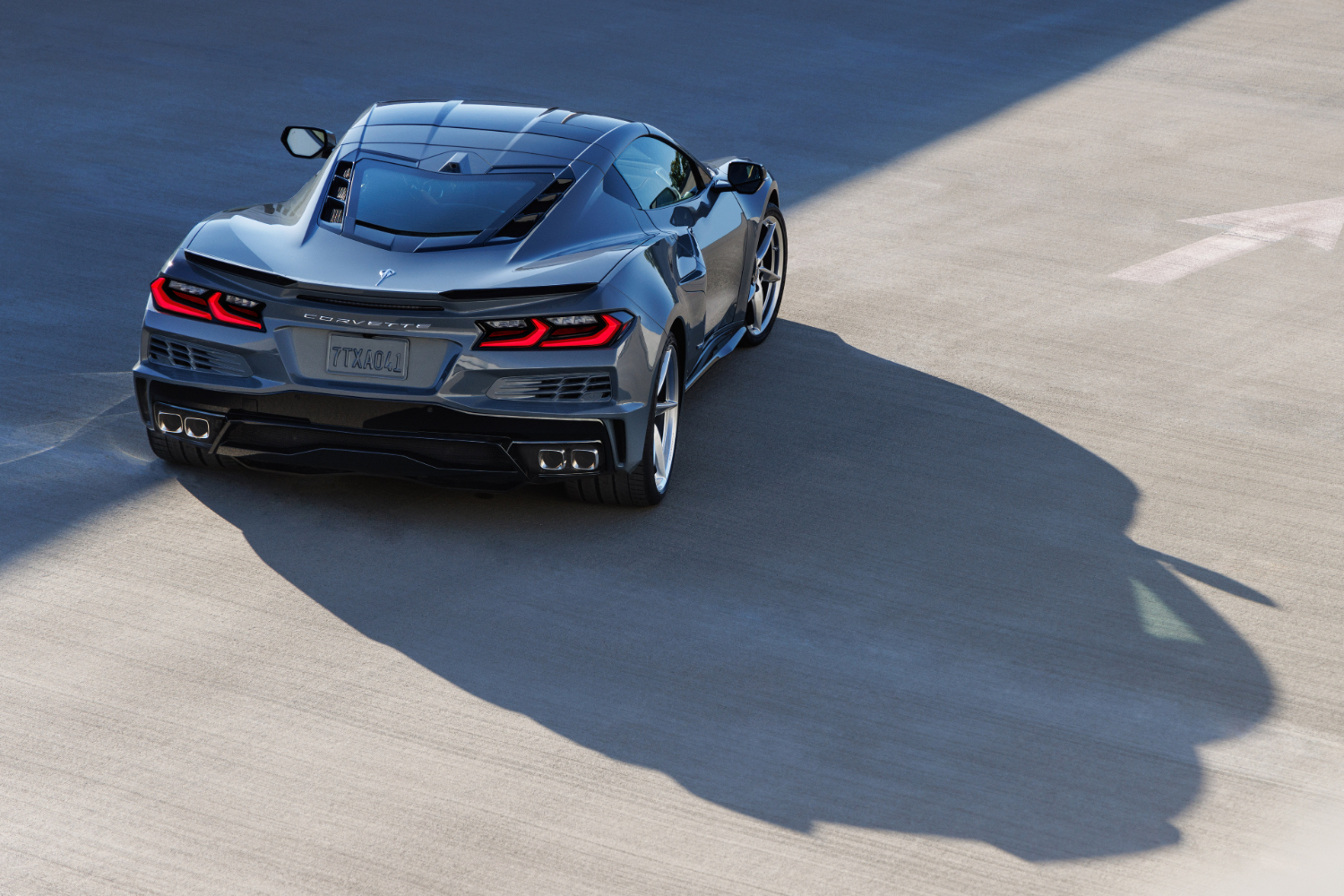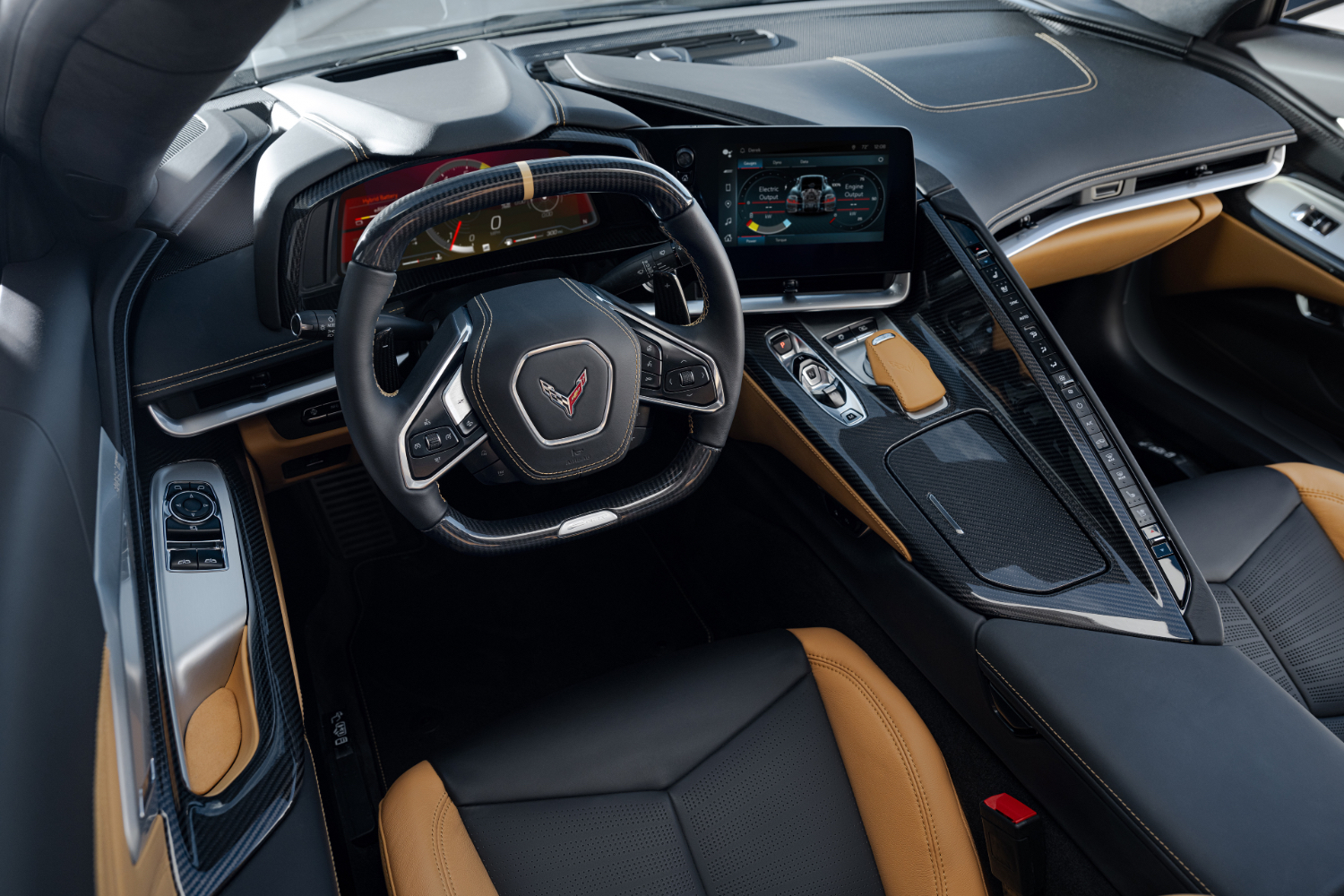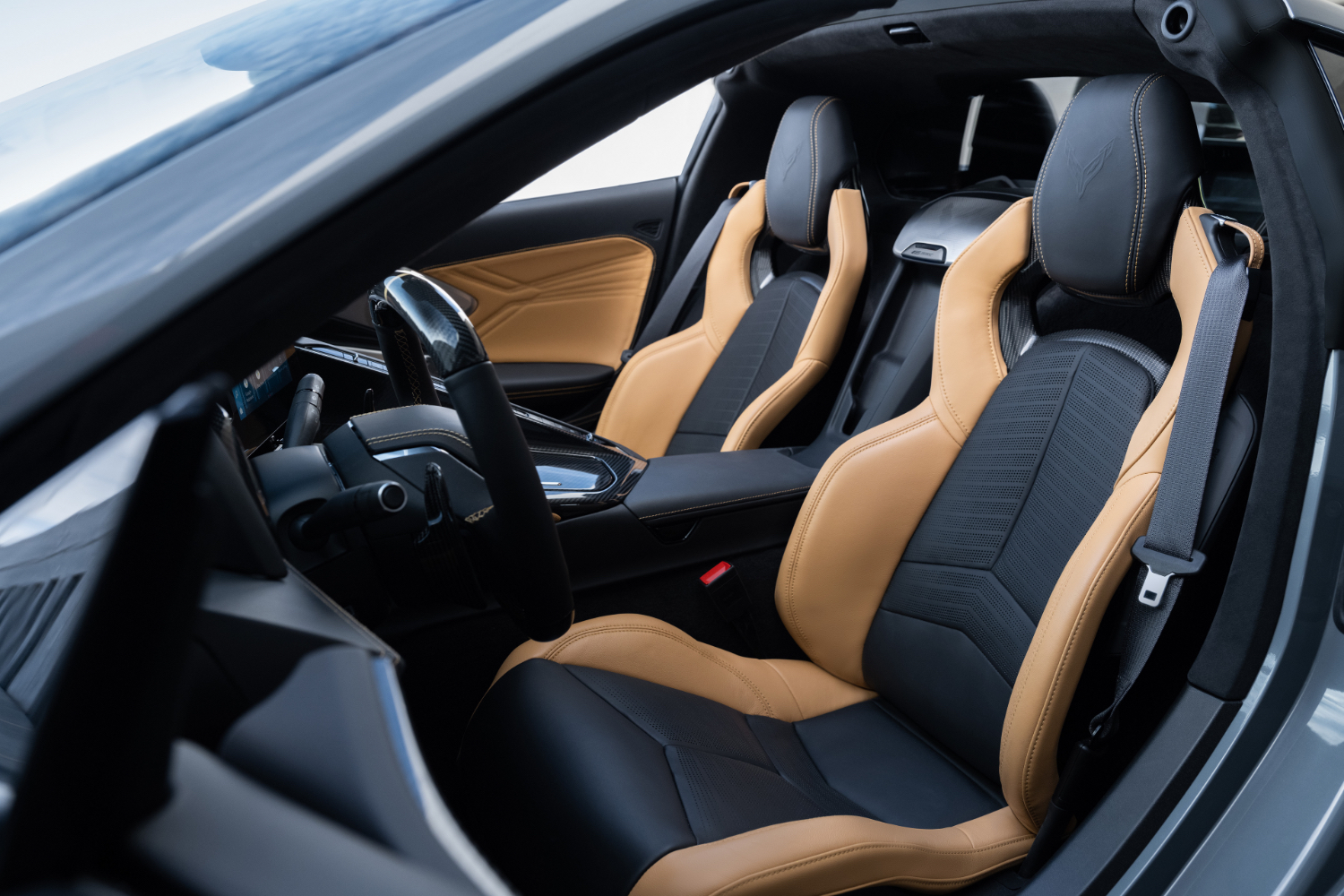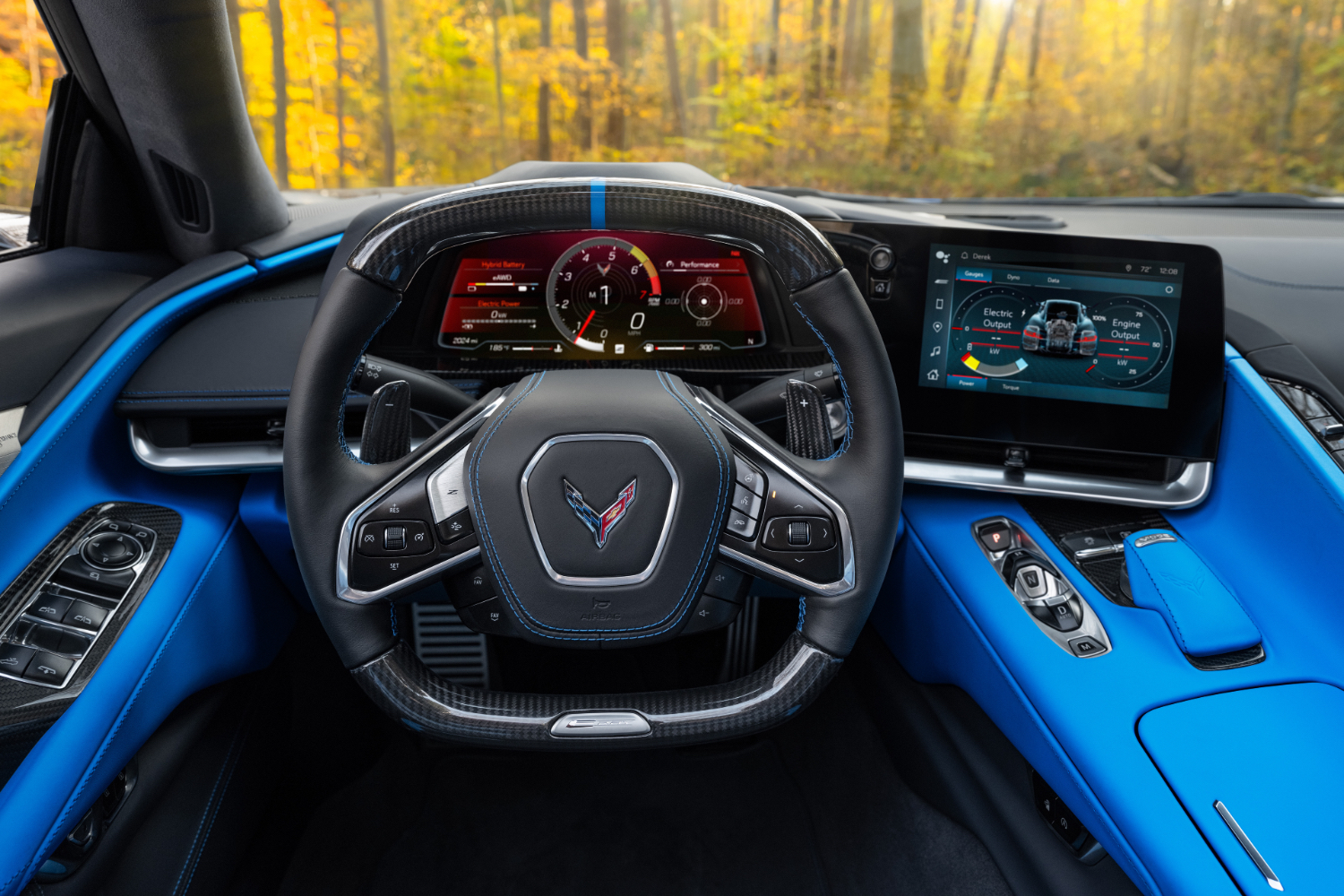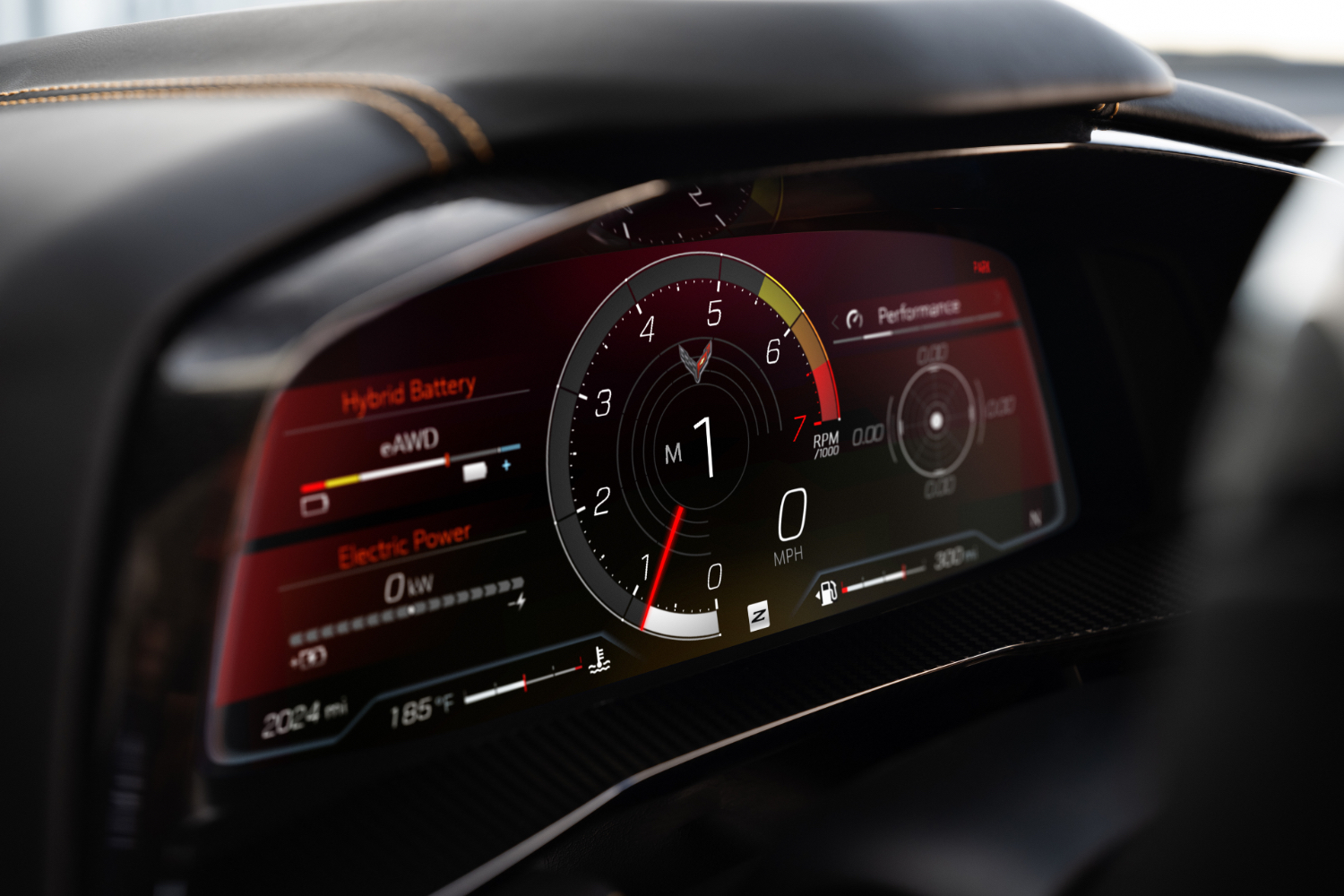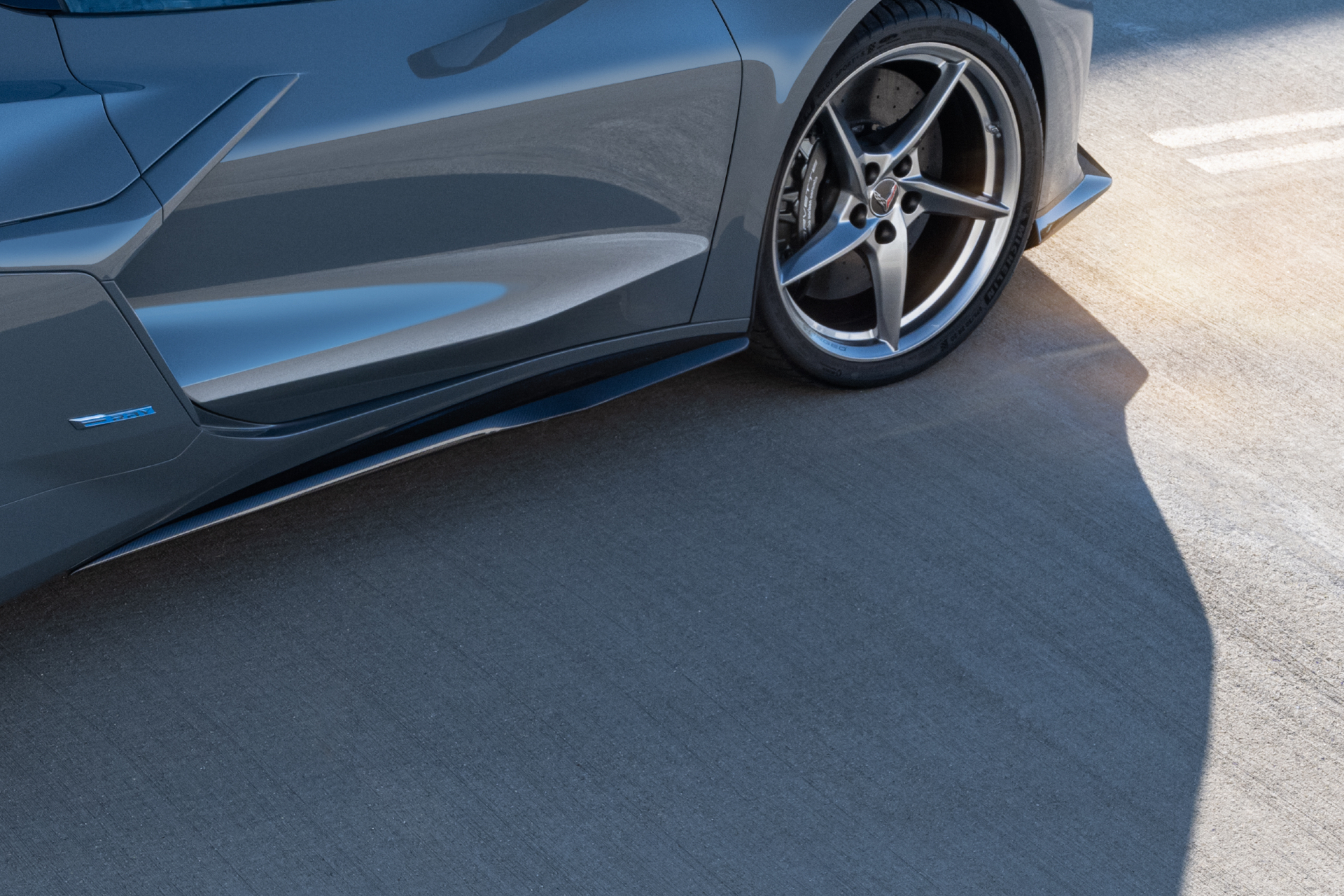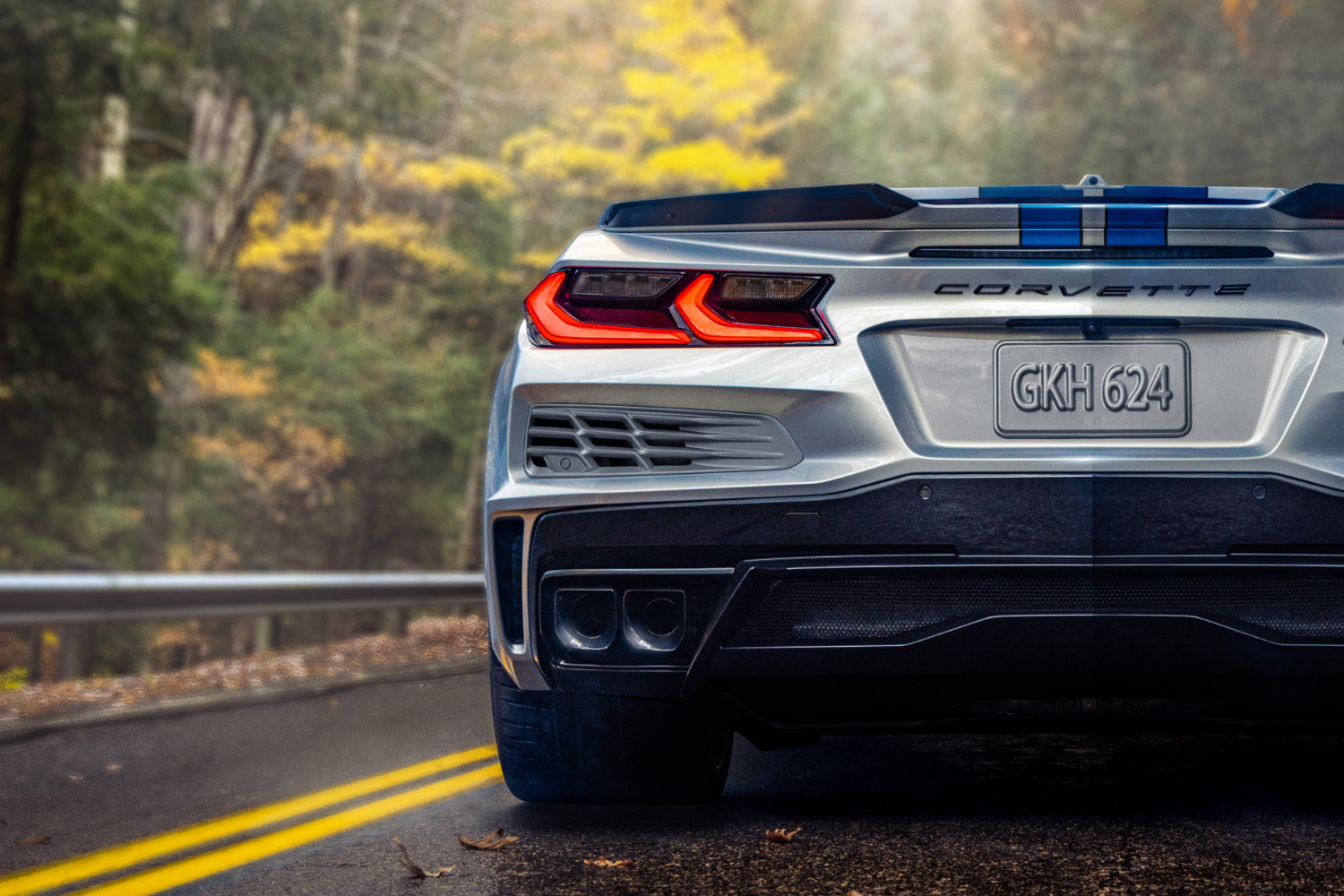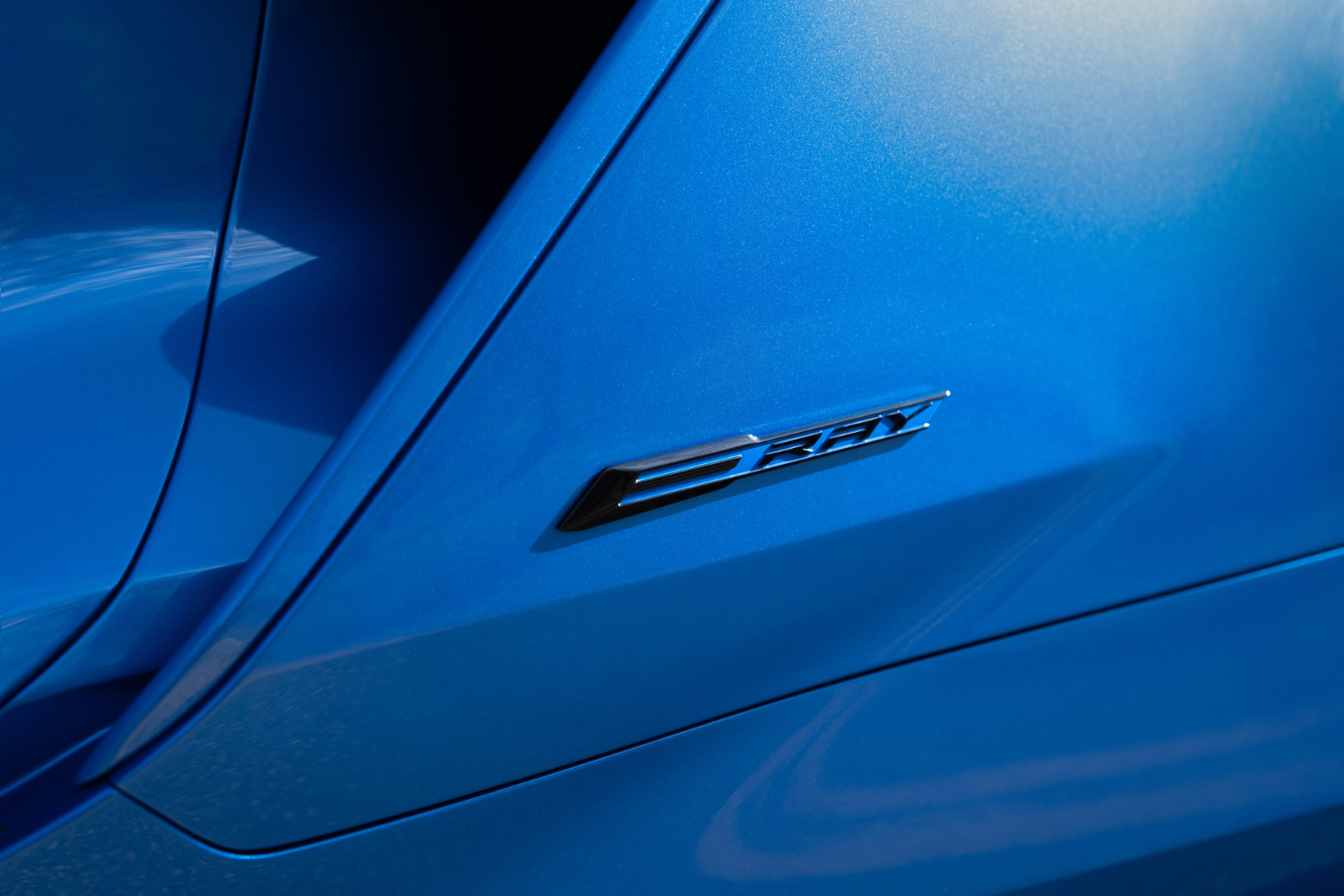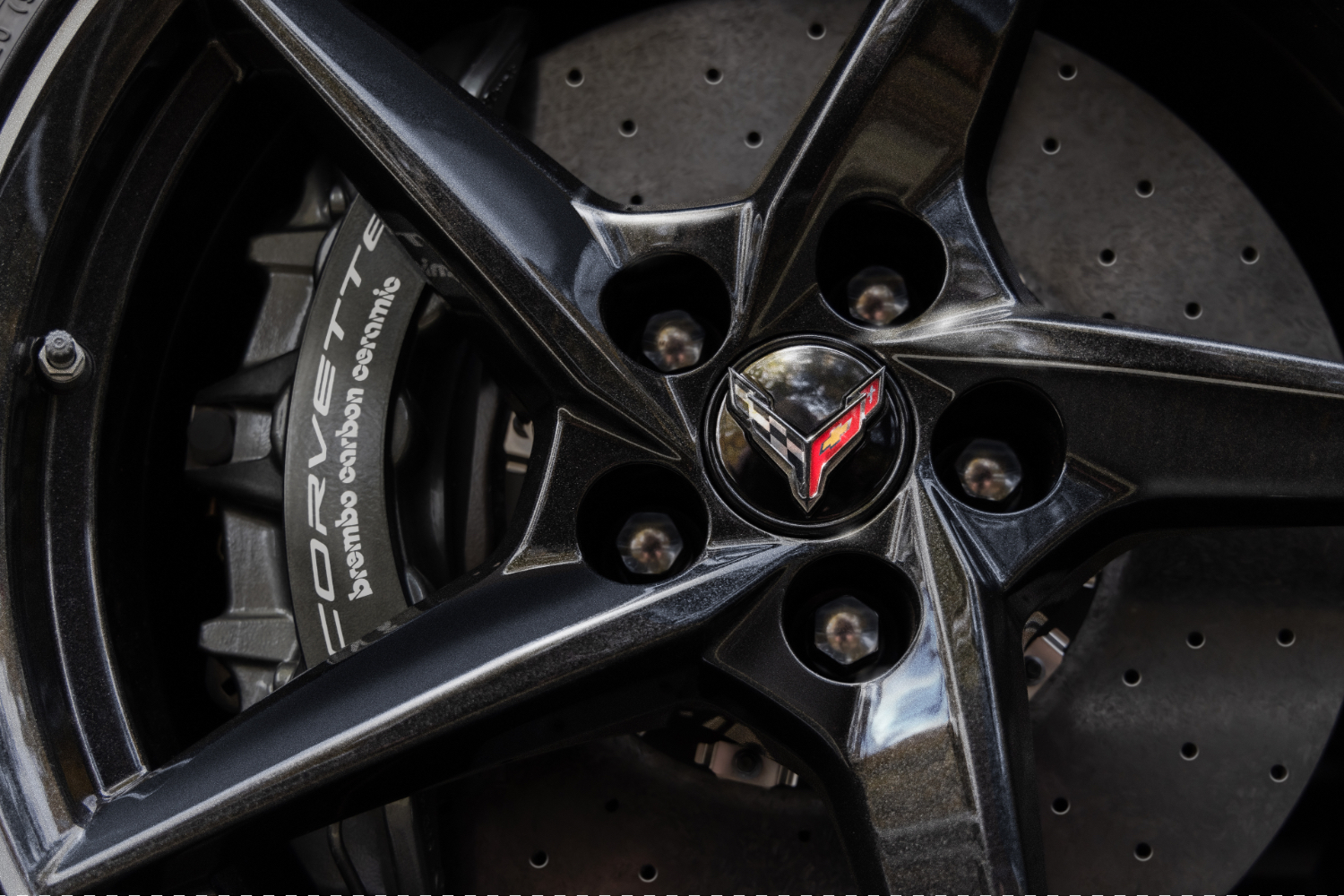Chevrolet Corvette fans that believe the sports car should have a V8 engine at the front and drive going to the rear wheels will not be happy with the 2024 Corvette E-Ray. In fact, if you belong in this camp, you might want to look away. Chevy has ensured the Corvette will have a place in its lineup as it shifts its focus toward all-electric vehicles by introducing a hybrid model with all-wheel drive (AWD).
It’s a massive departure from Corvettes of the past, but, more importantly for people that aren’t afraid of change, the new configuration brings impressive performance. The Corvette E-Ray brings a lot of firsts to the Corvette family. It’s the first Corvette ever to be electrified. It’s also the first Corvette ever to have AWD. While people can bemoan the changes, there’s no denying the effectiveness that AWD and electrification bring, as the E-Ray is the quickest Corvette ever made.
Let’s start with what’s happening under the Corvette’s body. The E-Ray features a 6.2-liter V8 engine out of the regular C8 Corvette, but integrates an electric motor on the front axle and a 1.9-kWh lithium-ion battery pack. The V8 pushes out 495 horsepower and 470 pound-feet of torque, while the electric motor is good for an extra 160 horsepower and 125 pound-feet of torque. Combined output is rated at a mega 655 horsepower.
Sneer all you want at the fact that the E-Ray is a hybrid, but it’s the quickest Corvette on sale. It may be down 15 horsepower compared to the Z06 that comes with a 5.5-liter V8 engine, but it can get to 60 mph in a claimed 2.5 seconds. That makes it 0.1 seconds quicker to 60 mph than the Z06. Additionally, it’s a tenth quicker in the quarter mile than the Z06, as the E-Ray can complete the sprint in 10.5 seconds. And this is all from an electrified Corvette that weighs 300 pounds more than the lightweight, track-oriented Z06.
The 2024 ERay Corvette can also do something no other Corvette can: travel on electricity alone. With its 1.9-kWh lithium-ion battery pack, the E-Ray has an estimated all-electric range of 5 miles. That’s not a lot, but it showcases how Chevrolet engineered the hybrid powertrain to aid performance and not make the Corvette something for people looking to replace their Toyota Prius.
The Corvette E-Ray can operate on electricity at speeds below 45 mph in what Chevy is calling Stealth Mode. If the driver goes above 45 mph, mashes the throttle, or the battery pack runs out of electricity, the E-Ray’s V8 kicks. Your neighbors will appreciate Stealth Mode, as it lets you start your E-Ray up without waking up the dead.
Similar to the Corvette Z06, the Corvette ERay wears the same wide bodywork that’s 3.6 inches wider than the standard Corvette. The wide body also allowed Chevy to stick massive 275-section front and 345-section rear all-season Michelin Pilot Sport tires to the E-Ray. The sports car comes with staggered wheels that are unique to the model, but will be available with carbon fiber wheels as an option. The E-Ray also comes with standard carbon ceramic brakes from Brembo and Magnetic Ride Control 4.0.
As one would expect, the E-Ray won’t be cheap. The electrified sports car will start at $104,295 for the coupe and $111,295 for the convertible. It does undercut the Z06 by $1,005.
